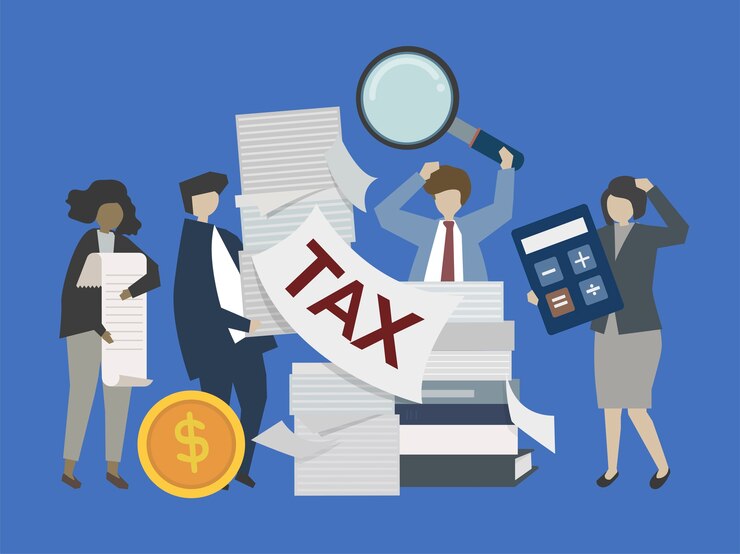Understanding Tax Strategies for Maximizing Deductions and Credits
Table of Contents
- Introduction to Tax Planning
- Finding the Right Deductions
- Maximizing Tax Credits
- Navigating Investments and Taxes
- Real Estate and Tax Considerations
- Education Expenses and Tax Benefits
- Charitable Contributions and Their Tax Impacts
- Small Business Tax Strategies
- Planning for Large Life Events and Their Tax Consequences
- Staying Informed on Tax Law Changes
Key Takeaways:
- Understanding tax law and its application can significantly affect your finances.
- Identifying the right mix of deductions and credits can reduce your tax liability considerably.
- Life events and large purchases are essential tax considerations that should be considered.
- Educating yourself about tax law changes can help you adapt your financial strategies accordingly.
Introduction to Tax Planning
Proactive tax planning is the cornerstone of savvy financial management and can benefit taxpayers at all income levels. A seasoned CPA in Wichita attests that strategic tax planning enables individuals and businesses to lower their tax bills. This planning typically involves maximizing deductions and credits legally available within the tax code. However, numerous taxpayers need help to plan adequately, often due to prevalent myths surrounding what constitutes a deductible expense or a credit. Moreover, failure to understand the potential benefits of certain financial decisions from a tax perspective can lead to unnecessarily high tax liabilities. A thorough understanding and a well-thought-out tax strategy are paramount to harness the tax code’s benefits.
Finding the Right Deductions
One key aspect of tax planning is understanding the difference between standard and itemized deductions and selecting the one that will result in more significant tax savings. The decision can be relatively straightforward for some taxpayers, while for others, it can require a more nuanced analysis based on their unique financial situations. For instance, taxpayers who have made significant charitable contributions or those with large, deductible medical expenses may find itemizing their deductions more advantageous than taking the standard deduction. Additionally, deductions such as state sales tax or mortgage interest can add up to sizeable sums but are commonly missed. Navigating these options requires awareness and caution, as inflating deductions or being overly aggressive can alarm the IRS and potentially lead to audits.
Maximizing Tax Credits
Tax credits offer taxpayers a dollar-for-dollar reduction of their tax liability, making them precious financial tools. They come in two forms: refundable and non-refundable. Refundable credits can result in a refund when the amount exceeds the taxpayer’s liability, such as with the Earned Income Tax Credit (EITC), which benefits explicitly working individuals and families with low to moderate incomes. However, these credits should be more utilized because many need to understand how to qualify or claim them fully. The EITC, in particular, has numerous qualifying rules that can intimidate eligible taxpayers from claiming what could otherwise be a considerable financial boost. Thus, maximizing tax credits combines knowledge, meticulous record-keeping, and strategic claiming.
Navigating Investments and Taxes
How investments are taxed is a critical but often overlooked aspect of financial planning. It is essential to consider the tax implications of different investment types, such as stocks, bonds, mutual funds, and real estate. For example, investment income earned through stocks held for less than a year is considered short-term and taxed at ordinary income rates, while long-term investments are taxed at a reduced capital gains rate. Retirement savings avenues, such as traditional and Roth IRAs, feature distinct tax advantages that can significantly impact retirement planning. Traditional IRAs allow for pre-tax contributions, which reduce your taxable income now, while Roth IRAs provide tax-free growth, potentially providing tax-free income in retirement.
Real Estate and Tax Considerations
Real estate ownership offers a variety of tax benefits that can affect owners and investors alike. Homeownership, for instance, comes with deductions like mortgage interest and property taxes, which can create meaningful tax savings. Similarly, real estate investors can take advantage of unique perks like depreciation on rental properties, which acts as a non-cash deduction, reducing taxable income. Being strategic about these accurate estate-related deductions can increase tax savings over time. However, staying abreast of any changes in the tax code that might affect these deductions is essential to maintain their benefits entirely.
Education Expenses and Tax Benefits
Education expenses can strain a family’s finances considerably, but taking advantage of tax deductions and credits can ease that burden. Tax benefits such as the American Opportunity Tax Credit or the Lifetime Learning Credit are designed to help offset higher education costs. The IRS also allows specific student loan interest to be deducted, but understanding the eligibility and limits of these educational tax benefits is crucial to ensure optimal use. For parents planning for their children’s education, 529 plans offer tax-advantaged ways to save for future educational expenses, further emphasizing the importance of integrating tax strategy with academic and financial planning.
Charitable Contributions and Their Tax Impacts
Charitable giving not only supports worthy causes but also provides tax benefits to the donor. To fully capitalize on these deductions, meticulous record-keeping is essential. For donations to be deductible, they must go to qualified organizations, and the donor must retain bank records or written acknowledgments of the contributions. There are limits on how much can be deducted in a given year, typically expressed as a percentage of adjusted gross income (AGI), underscoring the importance of planning and documentation in maximizing the tax benefits of charitable contributions.
Small Business Tax Strategies
For small business owners, the landscape of tax deductions and credits is vast and complex but ripe with opportunities for savings. Tax benefits can drastically differ based on the entity structure of the business—such as sole proprietorship, partnership, limited liability company (LLC), or corporation. Each structure has implications for tax treatment; thus, tax strategies must be aligned accordingly. It’s incumbent upon business owners to maintain proper and thorough documentation for all deductible business expenditures, such as office supplies, travel, vehicle use, and home office costs. An understanding of these nuances can yield considerable tax savings and enhance profitability.
Planning for Large Life Events and Their Tax Consequences
Significant milestones, whether joyful or otherwise, come with tax implications that require thoughtful planning. Marriage, for example, changes filing status and may impact tax brackets and deductions. Conversely, divorce has implications for asset division and alimony, which must be understood from a tax viewpoint. Similarly, having children introduces tax benefits like tax credits and deductions for childcare expenses. Moreover, life events such as receiving an inheritance often have complex tax rules, including potential estate tax liability depending on the value and nature of inherited assets. These events underscore the value of adjusting one’s tax strategies to adapt to new circumstances.
Staying Informed on Tax Law Changes
Tax laws are continually evolving, making it essential to stay informed about new deductions or credits and changes that could impact your financial planning. The IRS Newsroom is a valuable resource where taxpayers can find the latest developments in tax law. In addition, media coverage of legislative changes, like this CNBC article on tax credits, can provide insight into upcoming adjustments that might affect tax refunds. However, consulting with a knowledgeable tax professional is often a wise choice for those facing complex financial scenarios or who want to optimize their tax position. Continuous learning and professional advice empower taxpayers to navigate the ever-changing world of tax law efficiently and effectively.







